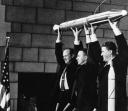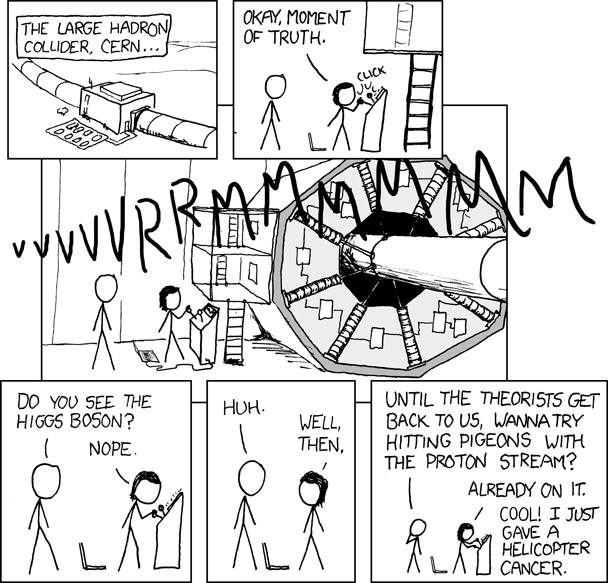
It’s the fiftieth anniversary, give or take, of Sputnik and Explorer I. While the Russians might have beaten the U.S. into space, the U.S. apparently came in first place for science. Or at least according to this op-ed from the L.A. Times:
Fifty years ago tomorrow, the United States launched its first satellite, Explorer 1, into orbit. Its success may seem to be a footnote in space history, a second-place finish to the Soviet Union’s Sputnik. After all, wasn’t it Sputnik, launched four months earlier, that represented the real scientific breakthrough and sent Americans cowering in fear at the shiny Russian ball orbiting overhead?
Not exactly. Sputnik, a “hey look at me” feat of engineering, did not throw the nation’s scientists into a panic or prompt a mad scramble to match the Soviet demonstration of power. Instead, President Eisenhower, while prodding his team for results, kept an established national space program focused on the deliberate pursuit of scientific progress, and as a result, it was the runner-up that scored a more important breakthrough for pure research.
Conceived by James Van Allen of the University of Iowa and built by the Jet Propulsion Laboratory in La Canada Flintridge, Explorer 1 carried with it instruments to detect radiation in near space and to send data back to Earth. This mission was an extension of a vast global project — called the International Geophysical Year — that involved thousands of scientists and technicians from almost every country.
Sputnik merely orbited Earth; Explorer made the first physical discovery in space, identifying the regions of high and low radioactivity now known as the Van Allen belts. These radioactive realms offered clues for understanding atmospheric phenomena such as the aurora borealis and the way radio waves behave over long distances. The belts also suggested that space might contain unusual and unimagined hazards.
Most interesting is the point made at the end of the article about how the U.S. space program is accomplishing more for science by supporting projects such as Hubble and leaving the peopled-mission fun to the private sector.



